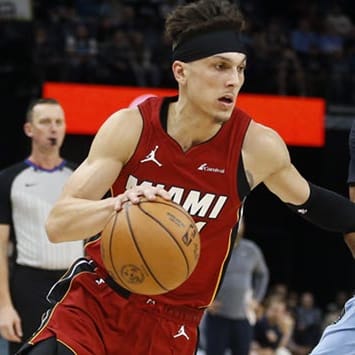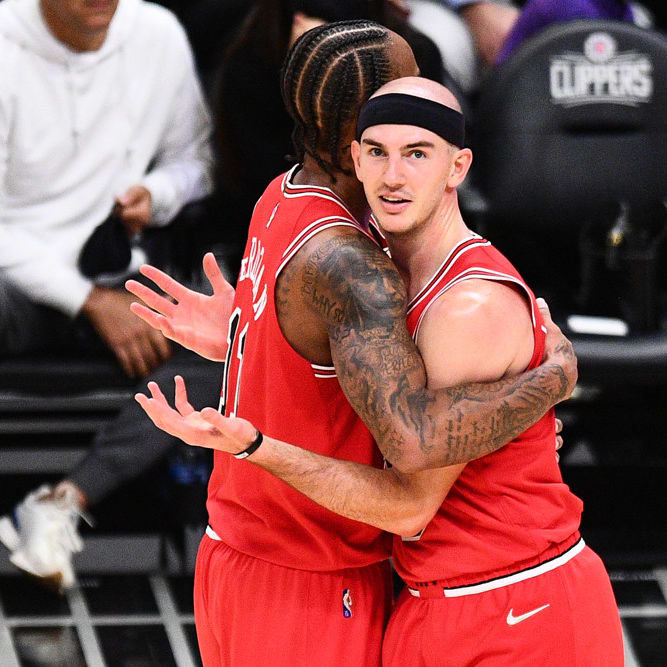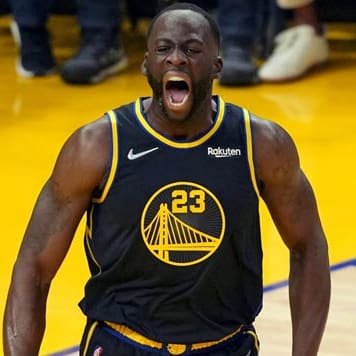Handcuffing -- tethering a player to his backup or a teammate who would benefit in his absence -- is a more common strategy in fantasy football, but that doesn't mean it can't be used effectively in basketball. There are plenty of high-level players with concerning injury histories, as well as shallow rosters that are home to few proven commodities.
In general, it's safest to handcuff players who have independent fantasy value. It's risky to draft a player's backup if he won't be fantasy-relevant when the starter is healthy. Usually, that means one or both players involved in the handcuff are multi-positional.
Here are a few options for the upcoming season:
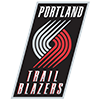 Hassan Whiteside and Zach Collins, Trail Blazers
Hassan Whiteside and Zach Collins, Trail Blazers
Portland's entire rotation is tough to gauge at this juncture, but let's focus on the frontcourt. Jusuf Nurkic is still without a real timetable for a return, and he probably won't look like the player we saw last season until late in the year. To shore up the center spot, the Blazers traded for Hassan Whiteside, who had worn out his welcome after a turbulent but productive run in Miami. Erik Spoelstra found it easy not to give Whiteside minutes down the stretch, as Bam Adebayo was laying in wait and proving to be a valuable asset.
In Portland, Terry Stotts doesn't have that same flexibility. Sure, Zach Collins is another viable option at center, but that leaves the Blazers exposed at power forward after losing both Moe Harkless and Al-Farouq Aminu during free agency. They've been replaced by the underwhelming pair of Anthony Tolliver and Mario Hezonja, plus Kent Bazemore (if you buy his ability to play the four -- I don't). If neither Collins nor Whiteside are playing center, that means minutes for Pau Gasol or Skal Labissiere, neither of whom have proven to be especially valuable in the recent past.
There's a realistic pathway for Collins to see minutes in the mid-to-upper 20s, even if Whiteside miraculously stays healthy. In the games Whiteside misses, Collins should slot in at center and have extra rebounding and shot-blocking opportunities. But this handcuff can be effective even if everyone stays healthy and plays up to expectations, which is what makes it so enticing.
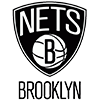 Kyrie Irving, Spencer Dinwiddie, and Caris LeVert, Nets
Kyrie Irving, Spencer Dinwiddie, and Caris LeVert, Nets
This entire trio has an injury history, but they're the only true playmakers on the roster. Any time one or more are injured, the others should benefit greatly. Over the past three seasons -- since LeVert's rookie year -- Irving is averaging 66.3 games per season. Dinwiddie is averaging 69 and LeVert is averaging 56.
To get an idea of how, exactly, Dinwiddie and LeVert could benefit, we can take a look at their numbers with D'Angelo Russell off the court last season. In that scenario, Dinwiddie averaged 10.9 more points and 2.7 more assists per 36 minutes. LeVert averaged 2.8 more points and 1.5 more assists per 36 minutes.
All three should be able to have success without the others getting hurt, as well. Irving will be the leader at point guard, but Dinwiddie is a combo guard and LeVert can play three positions. They'll spend plenty of time in various different lineups with each handling the ball or spotting up for jumpers in different situations.
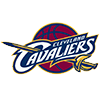 Kevin Love and Larry Nance, Jr., Cavaliers
Kevin Love and Larry Nance, Jr., Cavaliers
Love hasn't played more than 60 games since 2015-16, and there's little incentive for the Cavaliers to push him in any capacity given their status as a rebuilding team. He's also seen his workload decline every year since 2013-14. Still, Love is worth drafting if he slips far enough. Love has proven in the past that he only needs 60 appearances to return top-60 value.
If you draft Love, you'll probably want to snag Nance for the seemingly inevitable 20-25 games the former will miss. Nance will have a significant role even when Love is around -- 8.6 PPG, 7.0 RPG, 3.1 APG, a combined 1.9 STL/BLK in 23.8 MPG as a reserve -- so it's not a throwaway to draft Nance as a standalone asset.
The starts you'll get out of Nance will be very impactful, relative to his ADP. As a starter, he averaged 10.3 points, 9.8 rebounds, 3.3 assists and a combined 2.4 steals/blocks. It complicates things a bit if Tristan Thompson stays completely healthy and for some reason is given a role of 25 MPG, but that's not a scenario I would count on. Plus, it's very possible the Cavs trade Love at some point, which would be beneficial to Nance.
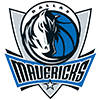 Kristaps Porzingis, Maxi Kleber, and Dwight Powell -- Mavericks
Kristaps Porzingis, Maxi Kleber, and Dwight Powell -- Mavericks
We should all be cautiously optimistic about Porzingis. He missed the entire 2018-19 season, and he hasn't played more than 72 games in a single season since entering the league. There's also reason to believe the Mavericks will be liberal with resting Porzingis for his long-term health, especially this season, when Dallas is likely to be a fringe playoff contender. If the Mavs reach a point where they're clearly out of the playoff race in a difficult Western Conference, Porzingis may live in street clothes.
Porzingis, Kleber and Powell are all options at both power forward and center. Other options in the frontcourt -- Dorian Finney-Smith, rookie Isaiah Roby, and Boban Marjanovic -- aren't nearly as reliable. So Kleber and Powell should consistently see 20-plus minutes even when Porzingis is healthy.
When The Unicorn is out, Kleber and Powell each have a shot at 30 minutes. Considering Powell's experience and post-All-Star-Break excellence last season, he's the safer bet to handcuff with Porzingis. But Kleber plays more like Porzingis -- a floor-spacer with blocks upside -- so there's motivation for coach Rick Carlisle to favor him when the latter is sidelined.
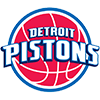 Blake Griffin, Andre Drummond, and Markieff Morris, Pistons
Blake Griffin, Andre Drummond, and Markieff Morris, Pistons
Griffin played 75 games last season -- his highest mark since 2013-14 -- but his body still broke down once the playoffs arrived. Over the past five seasons, he's averaging just 59.4 games per year.
While it might be tough to draft Drummond and Griffin close together in roto formats, it could be advantageous. Obviously, each player has strong fantasy value on their own, but Drummond sees a noticeable spike in usage when Griffin is off the court. Under that condition, Drummond sees a 3.0 percent bump in usage, averaging 1.8 more points and 2.7 more rebounds per 36 minutes.
It'll be easier to get a share of Markieff Morris, who figures to slot in as the starting power forward when Griffin is absent. That position was essentially vacant last season, and coach Dwane Casey cobbled together reserve power forward minutes with the likes of Thon Maker, Jon Leuer, Stanley Johnson and Glenn Robinson. Morris can play some small-ball center, as well, which could afford him sixth-man minutes even when everyone is healthy.
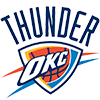 Chris Paul, Shai Gilgeous-Alexander, and Dennis Schroder, Thunder
Chris Paul, Shai Gilgeous-Alexander, and Dennis Schroder, Thunder
Breaking away from James Harden, Paul has an opportunity to revamp his usage and fantasy value. However, no fantasy owner who drafts Paul should expect him to play more than 65 games, as he hasn't made more than 61 appearances in any of the past three seasons.
It makes sense to pair the veteran with Gilgeous-Alexander, who is undoubtedly the Thunder's point guard of the future. His length and defensive prowess also allows him to play three positions, so SGA should have no problem earning minutes regardless of Paul's health.
A deeper cut is pairing Paul with Schroder, who saw 29.3 minutes per game last season, even with Russell Westbrook playing 36.0 minutes and missing only nine games. Schroder also saw a huge usage spike when Westbrook was off the court, which bodes well for time that CP3 will spend on the bench. With Westbrook on the sidelines, Schroder's usage increased by 12.9 percent and he racked up 8.1 more points, 2.8 more assists and 1.0 more rebound per 36 minutes. Like Kevin Love, Paul is also a strong candidate to be dealt before the deadline, which would be a boon to both Schroder's and Gilgeous-Alexander's value down the stretch.
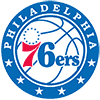 Joel Embiid, Al Horford, and Tobias Harris, 76ers
Joel Embiid, Al Horford, and Tobias Harris, 76ers
Embiid's injury history is well-documented, and while he set a career-high in games played last season, he still missed 18 regular season contests. That feels like an appropriate over/under for the upcoming season, especially since the Sixers are essentially a lock to be a top-four seed in the Eastern Conference. That should give Brett Brown plenty of license to rest Embiid, and the Sixers now have a significantly better backup option at center in Al Horford. Embiid's projected absences should not only open up opportunities for Horford, but also for Tobias Harris. When Embiid was off the court last season, Harris saw a five percent bump in usage rate, and he averaged 5.4 more points per 36 minutes.
Chances are, Horford will miss time too. He'll be entering his age-33 season, and he hasn't played more than 72 games in any of the past three campaigns. The 76ers do have other options in the frontcourt like Mike Scott and Jonah Bolden, but neither are high-usage players or playmakers in any capacity. All things considered, it makes more sense to put faith in Embiid, Harris and Horford than gambling on one of the lesser frontcourt options.
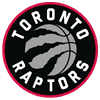 Kyle Lowry and Fred VanVleet, Raptors
Kyle Lowry and Fred VanVleet, Raptors
The departures of Kawhi Leonard and Danny Green with no reliable replacements leave the Raptors much thinner than they were last season. As a result, we may see VanVleet start at shooting guard and garner a bigger role, though exactly how big of a role may depend on how serviceable Norman Powell and OG Anunoby can be. At the very least, we know VanVleet is slotted in for sixth-man minutes and is likely to see a usage bump with Leonard out of the picture.
Lowry should see an uptick in usage, as well, but he has struggled to stay healthy, playing in 65 or fewer games in two of the past three seasons. When Lowry misses games this season, it may be Powell or Anunoby who see the most dramatic increase in minutes, but neither are worth drafting in a standard league.
VanVleet is the one who should handle crucial point guard duties. When Lowry was off the floor last season, VanVleet's usage rate bumped up nearly five percent, though it only resulted in an increase of 1.0 point (due to poor efficiency) and 1.1 assists. That jump will need to be more dramatic this season if the Raptors hope to remain a top-five team in the East.
Montrezl Harrell and Ivica Zubac, Clippers
This is one for deep leagues only, but Harrell and Zubac are the Clippers' only two options at center. Harrell will have the standard league fantasy value, and he should see a workload similar to the 26.3 minutes per game he garnered last season. If either one of the two go down at some point, the other should easily crack 30 minutes.
When Harrell played at least 30 minutes in 2018-19, he averaged 18.5 points, 8.2 rebounds, 2.3 assists and a combined 2.6 blocks/steals. When Zubac saw 30-plus minutes, he averaged 19.8 points, 10.6 rebounds, 1.0 assist and a combined 3.4 blocks/steals. The downside of this pairing is that they won't share the court, so grabbing Zubac is a true leap of faith -- one that you probably won't have the luxury to afford in standard leagues.
 Damian Lillard, C.J. McCollum and Kent Bazemore, Trail Blazers
Damian Lillard, C.J. McCollum and Kent Bazemore, Trail Blazers
Part of what makes the backcourt of Lillard and McCollum so special is their collective ability to stay healthy. Over the past four seasons, the two have missed just a combined 42 games. They've also had individual success together, with Lillard making four All-NBA teams and McCollum averaging at least 20 points and three assists across the past four years.
That doesn't mean that injuries are off the table, however. And each player gets a nice boost when the other is off the floor. Last season, Lillard saw a 6.7 percent usage bump without McCollum, and McCollum saw a 5.0 percent usage bump without Lillard.
In general, the Blazers might be more reliant on their backcourt duo than ever before. Jusuf Nurkic will miss most of the season due to a gruesome leg injury suffered just before the playoffs. Plus, Moe Harkless and Al-Farouq Aminu have moved on to other teams. The replacement players -- Kent Bazemore, Anthony Tolliver, Hassan Whiteside and Mario Hezonja -- are intriguing but far from sure things.
If you choose not to team Lillard with McCollum, pairing one with Bazemore makes sense. While the veteran had an underwhelming second half of the season with the tanking Hawks, he averaged 14.0 points, 4.0 rebounds, 2.6 assists and a combined 2.6 steals/blocks across 27.4 minutes through his first 35 appearances. Considering how thin the Blazers are on the wing, it's realistic that Bazemore puts up those type of numbers playing mostly small forward this season. And if either Lillard or McCollum misses time, Bazemore is also an option as a secondary ball-handler who, in that scenario, could easily see 30-plus minutes.
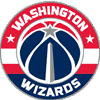 Bradley Beal and Ish Smith, Wizards
Bradley Beal and Ish Smith, Wizards
How will the Wizards will generate offense if Beal misses time? The only playmakers on this team are Beal, Smith and the ghost of Isaiah Thomas (no, he's not worth drafting). Beal has top-five fantasy upside if he's among the league leaders in minutes again, but that's not exactly a safe bet. It makes more sense for the Wizards to protect the asset, resting Beal when necessary and not playing him 35-plus minutes regularly.
Smith should be fantasy-relevant, regardless of Beal's health and playing time. He proved to be a quality facilitator in Detroit, even playing alongside Reggie Jackson and Blake Griffin for stretches. It's just difficult to ignore Smith's potential if Beal misses 15-plus games or gets traded mid-season. For Smith's career, he's averaged 15.2 points, 6.7 assists, 4.1 rebounds and 1.2 steals when playing at least 30 minutes.
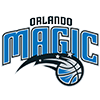 D.J. Augustin and Markelle Fultz, Magic
D.J. Augustin and Markelle Fultz, Magic
The Magic pseudo-addressed their lacking point guard talent by adding Fultz to the mix. That's not to say Augustin was ineffective last season. He averaged 12.6 points, 6.2 assists and 3.4 rebounds post-All-Star-break when Orlando was making a playoff push.
But Orlando's point guard situation might be the most subject-to-change in the league, and it's entirely dependent on Fultz. If Fultz can fully recover from his mysterious bout with Thoracic Outlet Syndrome -- a massive, massive if -- he clearly has the talent to unquestionably become Orlando's starting point guard. But there's also a very real possibility that this season turns out like the last, and Fultz never recovers. In that scenario, Augustin would likely keep a firm hold of a 28-plus-minutes-per-game role.
Fantasy owners in standard leagues could realistically end up with Augustin and Fultz with the final two picks in the draft. Would it be the best use of resources? Maybe not. But if you're a strong believer in Fultz and want to hedge your bet, tethering him to Augustin is a safe play.







